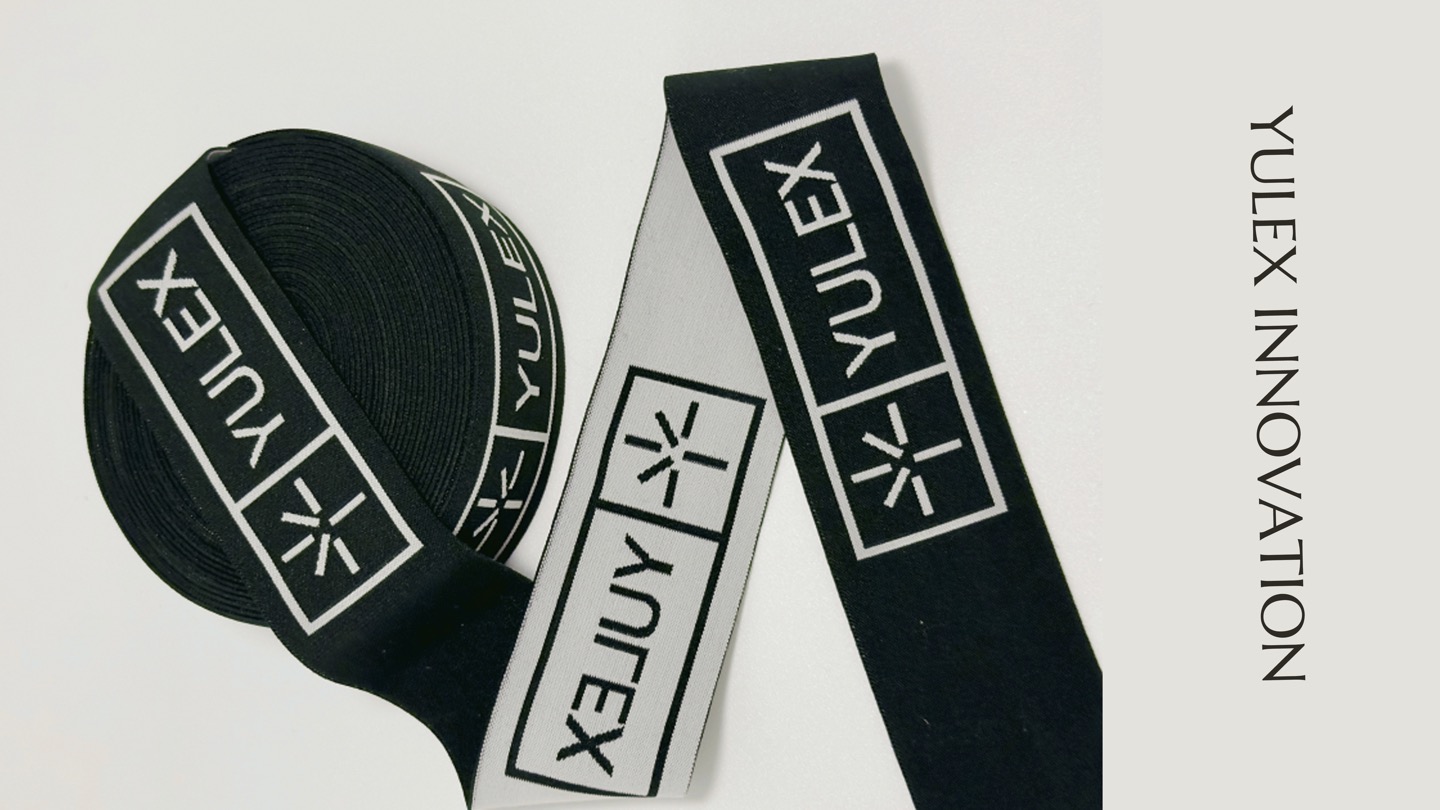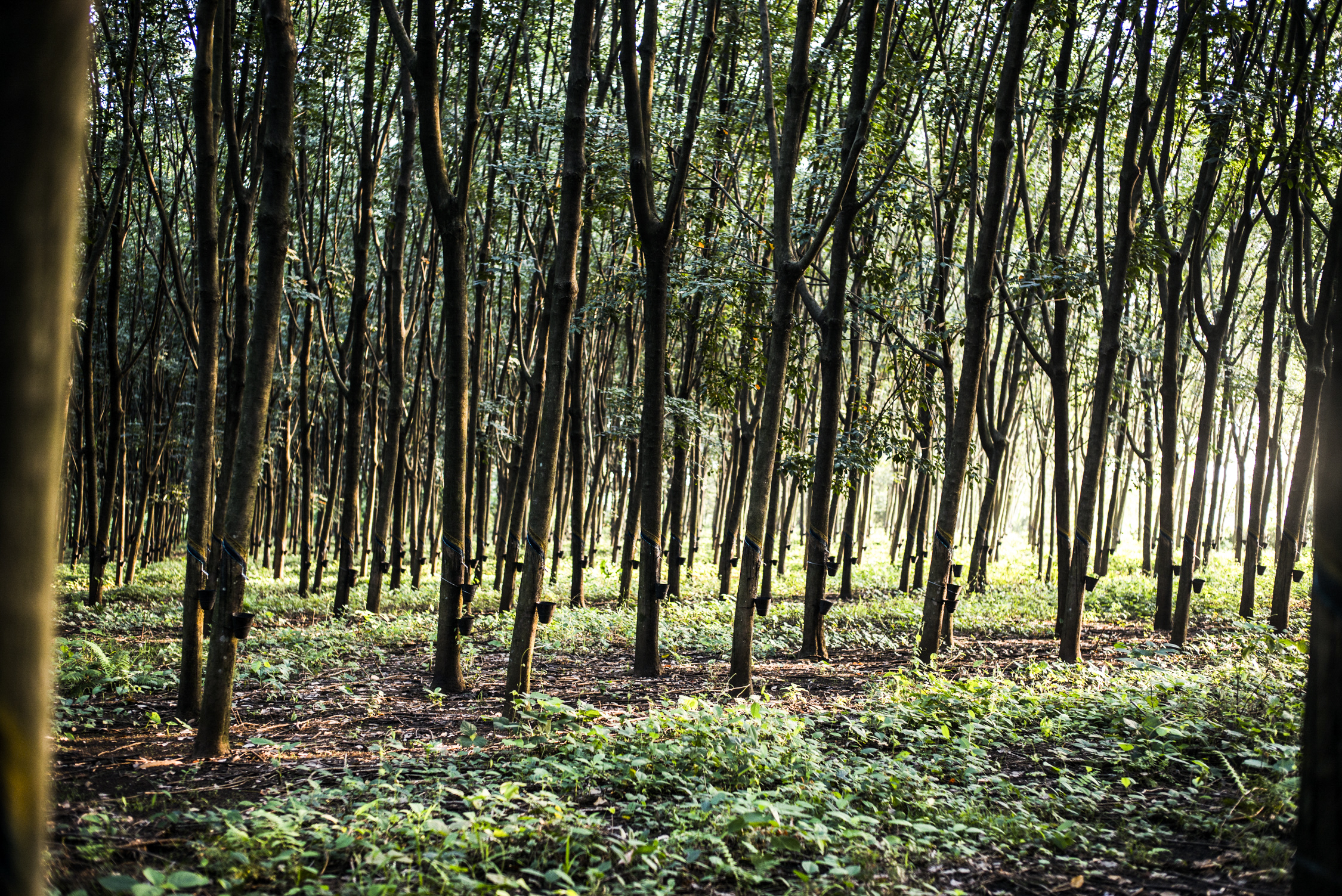

As the materials industry moves toward more plant-based solutions, it’s helpful to understand that all plants naturally contain proteins.

Did you know that based on a cradle-to-gate comparison, certified natural rubber latex used in YULASTIC® filament production delivers a step-change in climate performance, with an ~80% lower CO₂e footprint than fossil-derived inputs used to make elastane (spandex).
.jpg)
Nyord has always believed that everyone should have access to the best gear, without compromising on sustainability or price. That’s why we’re so excited to introduce the Solu – our brand new wetsuit range made with Yulex®, natural rubber.
.jpg)
Replacing spandex with YULASTIC® natural rubber fine filaments changes the equation.

When Yulex launched its Equitable Agriculture smallholder profit-sharing program, our goal was based on our boots on the groundwork with them. It was simple: create a fairer, more equitable & sustainable future for natural rubber farmers.

WTIN published an article by Abigail Turner, announcing the introduction of Yulastic.
.jpg)
Yulastic natural rubber filaments are 100% biobased, offering a sustainable alternative and replacement for petroleum-based spandex.

The YULEX founders talk about their mission to replace petroleum-based products on the Hero Inside Podcast with Tomas Vucurevic.

Yulastic filaments replace petroleum-based spandex in stretchable denim, socks and elastic. Yulastic is 100% biobased. Inside Denim is a trade magazine that focuses on the global denim industry, providing up-to-date information and discussions on various topics affecting the denim supply chain.

● YULEX2.0 are new formulations of Yulex natural rubber, replacing neoprene in many products ● YULEX2.0 is a higher performing material with superior stretch and elasticity ● YULEX2.0 is available from a new expanded supply chain of independent factories

Yulex only works with PEFC® and/or FSC®-certified natural rubber plantations and processors, the leading international forest management organizations promoting responsible forest management and certification.

An article by Wavelength Magazine about how YULEX is shifting the wetsuit industry towards plant-based rubber

When we were informed by GUL that their YULEX natural rubber foam wetsuit out-performed other comparable petroleum-based neoprene wetsuits for the Lost Shore Surf Resort testing, we were immediately stoked.

Sweet Sweat® Eco Waist Trainer is the first natural rubber waist trainer made with YULEX® technology.

Zhik, the leading innovator in sailing gear, proudly announces the release of its new Yulex® Foam Natural Rubber wetsuit range.

The world’s first inland surf resort has announced all of their wetsuits will be made from YULEX, a plant-based foam material after tests showed they outperform more conventional alternatives.
%2C%20AZ.jpg)
A look at the history of the Natural Rubber industry through the eyes of YULEX founder, Jeff Martin.

We are the proud recipients of the Forest Stewardship Council (FSC) 2023 Leadership Award.

Yulex today announces the promotion of Dr. Elizabeth (Liz) Bui to Chief Executive Officer.

The regulation is aimed at minimizing the EU’s contribution to deforestation and forest degradation worldwide. We break down what it means for your rubber supply chain.

Yulex has partnered with PEFC by investing in smallholders which is critical in reducing systemic inequalities in the natural rubber supply chain.

CO2e emissions of natural rubber, polychloroprene (or neoprene), styrene butadiene, and limestone-based polychloroprene (or geoprene) based on independent scientific, peer-reviewed, journals and/or self-reported data to U.S. regulatory agencies.

Whether you’re a company leader who’s choosing materials for your products or a consumer who’s making buying choices for your household, learning about your options is the first step.

Tetsuya Ohara, then Patagonia's Director of Advanced R&D, can tell you what a long, strange trip it’s been.

Before Alison could walk, the family traveled to India, lived with the Tibetan Ladakhi people, and traveled to remote regions of the Himalayas and Nepal, climbed high peaks and explored the Rajasthan desert.

Finisterre is a surfing apparel company and does not manufacture or invent per se. However, what it does very well is it curates, investigates and delivers durable products that are environmentally conscious.

What is ISPO? It's the largest trade show for the sporting industry. It takes place every year in Munich. This year was the first F2F (face to face) show in 2 1/2 years. There were over 1,700 exhibitors with their latest sports products to over 40,000 attendees from over 110 countries.

When thinking about buying a new wetsuit, what do you think of these days? Do you just stick with what you know, or do you take a long look at the ethos and values of a company before parting ways with your cash? Mix of both? Neither?

You may have seen some wetsuits marketed as neoprene free, but why? Do non neoprene wetsuits matter? Learn all about the switch to neoprene free wetsuits here.

Which is the better choice: natural or synthetic rubber? Or a unique third option? Read about the differences between natural vs. synthetic rubber.

Products you use every day could be posing health risks and risks to the environment. Find out how and what you can do when you learn about chloroprene.

If you’re on a journey of living a more sustainable, environmentally friendly lifestyle, you’re probably discovering that many of the products you used were impacting the ecosystem in ways you had never realized.

Yulex’ mission is to develop and innovate to create solutions, specifically, replacements for certain petroleum-based textiles e.g. neoprene, geoprene and soon spandex.

Vietnam's 3,000-kilometre coastline contributes to over 5 million jobs in the fishing and seafood sector and is one of the top seafood exporters globally.

YULEX PURE natural rubber latex and solid are special Yulex grades of natural rubber. Recall prior chronicles talked about different grades of natural rubber including cup lump, concentrated latex and 3L.

Yulex is a material science and product company developing materials such as high performance foams, films and fibers from certified natural rubber - both solid rubber and liquid rubber (a.k.a. latex).

We're taking a little break from talking about rubber, but still in keeping with how things are made and stories while we're on the road - Sa Pa, Viet Nam.

30 million metric tons of natural and synthetic rubber are produced annually. 60% of this total is synthetic rubber – about 18 million metric tons! The majority of synthetic rubber is butadiene used to make tires and yes, neoprene.

Like rubber, latex can be natural or synthetic. Natural latex is the substance harvested from the rubber tree- also called tree latex.

Answer: Yes. Chloroprene is a chemical used to make a synthetic rubber or neoprene.

It all starts with an element we learned about in school - carbon. Life on Earth would not even be possible without carbon. For real! Carbon is Queen.

The last Yulex Rubber Chronicle spoke to cup lump rubber made from tee latex that had been coagulated or pre-coagulated at the plantation. It is hard to remove dirt from pre-coagulated rubber.

Natural rubber was first identified and collected in Central and South American in about 1600 B.C.E. But the origin of the word we use now goes back to 1770, when chemist Joseph Priestley noticed that lines drawn with a pencil can be removed using rubber.

There are over 264,000 Vietnamese smallholders that together produce over 50% of the total Vietnamese rubber supply.

Thank you for signing up for our newsletters, which admittedly has been a long time coming. But we have a journey to share that is the core of our ethos - planet and people first.

Did you know limestone mining is a serious environmental hazard and health hazard? Find out how it affects the planet and how you can reduce the impact.

Yulex is an FSC certified natural rubber which produces 80% less CO2 emissions than Neoprene in its manufacturing process. Unlike neoprene, Yulex is 100% plant based, requiring no mining, drilling or non-renewable resources like petroleum or limestone.

The XSCAPE collection continues Aqualung’s legacy in innovation, and their tireless work to create the most forward thinking and eco-conscious dive company in the world.

There’s more to think about now than just, ‘is the wetsuit durable or flexible?’ It’s our duty to look at the materials used in the construction of our prized rubber and make choices that are conducive to an eco-friendly future.

Sustainability for this collection was really important to us, as it has been to H&M. It has been at the very core of the collection from materials to processes.

As everyone becomes more conscious of what they buy, the action sports industry will have to make that shift.

Decker’s owned Sanuk, the California shoe brand most known for its easy going slide ons, has launched a shoe made with Yulex a natural rubber coming from FSC-certified forests in Guatemala.

Looking into both environmental and social responsibility, Patagonia, as it stands now, is the only wetsuit manufacturer that is Fair Trade Certified and neoprene-free.

Combining oceanwear and activism, Kiwi entrepreneur Janaya Wilkins is well on her way to producing the world’s first range of luxury, plant-based swimsuits.

When we first learned that the tinkerers at Yulex were making wetsuits out of natural rubber, we got excited.

As of 2018, all of Seea’s wetsuit range is neoprene free. We’re replacing neoprene with plant-based Yulex technology because we believe in choosing sustainable and ethically sound materials whenever possible.

It’s been three years in the making, but we’re really excited to be launching our first natural rubber wetsuit made from Yulex Pure

With the surf world trending green, Hub predicts that other companies will jump on board the natural rubber train boasting a more sustainable option. But the FSC certification is important, and not all will have that.
